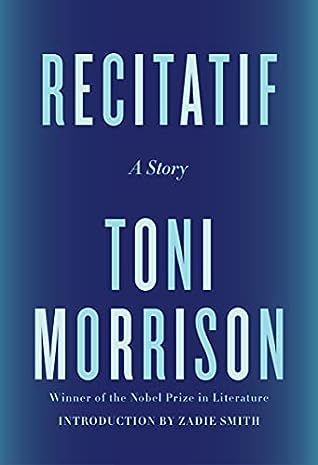More on this book
Community
Kindle Notes & Highlights
This extraordinary story you hold in your hands was specifically intended as “an experiment in the removal of all racial codes from a narrative about two characters of different races for whom racial identity is crucial.”
The characters in question are Twyla and Roberta, two poor girls, eight years old and wards of the state, who spend four months together in St. Bonaventure shelter.
What we never learn definitively—no matter how closely we read—is which of these girls is black and which white.
We will assume, we can insist, but can’t be sure.
And this despite the fact that we get to see them grow up, becoming adults who occasionally run into each other. We eavesdrop when they speak, examine their clothes, hear of their husbands, their jobs, the...
This highlight has been truncated due to consecutive passage length restrictions.
When she called “Recitatif” an “experiment” she meant it. The subject of the e...
This highlight has been truncated due to consecutive passage length restrictions.
In this story, though, the challenge of capturing “ordinary speech” has been deliberately complicated. For many words are here to be “sung on the same note.” That is, we will hear the words of Twyla and the words of Roberta, and although they are perfectly differentiated the one from the other, we will not be able to differentiate them in the one way we really want to.
But one of the questions of “Recitatif” is precisely what that phrase “peculiar to” really signifies.
That which characterizes That which belongs exclusively to That which is an essential quality of
The first suggests a tendency; the second implies some form of ownership; the third speaks of essences and therefore of immutable natural laws.
As readers we urgently want to characterize the various characteristics on display. But how?
most attempts to answer it tend to reveal more about the reader than the character.
Imagine thinking of history this way! As a thing personally directed at you. As a series of events structured to make you feel one way or another, rather than the precondition of all our lives?
Morrison wants us ashamed of how we treat the powerless, even if we, too, feel powerless.
Morrison constructs the story in such a way that we are forced to admit the fact that other categories, aside from the racial, also produce shared experiences.
It was one thing to be taken out of your own bed early in the morning—it was something else to be stuck in a strange place with a girl from a whole other race.
Every now and then she would stop dancing long enough to tell me something important and one of the things she said was that they never washed their hair and they smelled funny.
“Is your mother sick too?” “No,” I said. “She just likes to dance all night.” “Oh.” She nodded her head and I liked the way she understood things so fast.
So for the moment it didn’t matter that we looked like salt and pepper standing there and that’s what the other kids called us sometimes. We were eight years old and got F’s all the time. Me because I couldn’t remember what I read or what the teacher said. And Roberta because she couldn’t read at all and didn’t even listen to the teacher.
We didn’t like each other all that much at first, but nobody else wanted to play with us because we weren’t real orphans with beautiful dead parents in the sky. We were dumped.
Fifteen, sixteen, even, some of them were. They were put-out girls, scared runaways most of them. Poor little girls who fought their uncles off but looked tough to us, and mean.
I think she could hear and didn’t let on. And it shames me even now to think there was somebody in there after all who heard us call her those names and couldn’t tell on us.
I thought if my dancing mother met her sick mother it might be good for her. And Roberta thought her sick mother would get a big bang out of a dancing one.
Those four short months were nothing in time. Maybe it was the thing itself. Just being there, together. Two little girls who knew what nobody else in the world knew—how not to ask questions.


